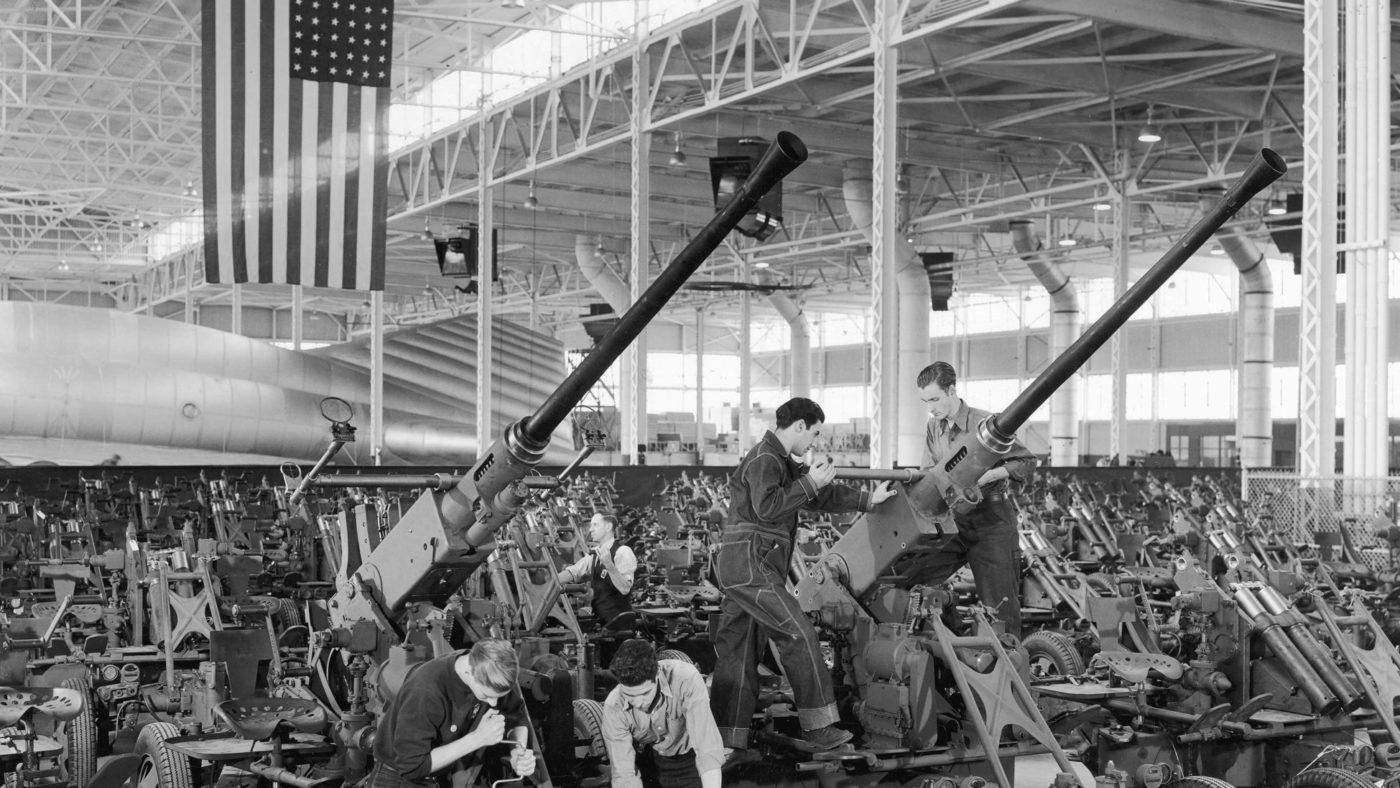Today marks 80 years since the UK and France declared war on Nazi Germany following the invasion of Poland. Much is rightly said about the heroism of our armed forces, and the doughty attitude of civilians. Perhaps less heralded is the way capitalism was instrumental in allowing the Allies to defeat the Nazis.
The war effort on both sides depended on the ability of the respective powers to produce enough high quality weapons and vehicles. One would have expected the Nazis to have the upper hand in this regard. They had conquered most of Europe and so had control of a huge number of factories and sources of natural resources. All other things being equal, they should have won.
But thankfully, as we all know, they didn’t. So, what happened? Well, without wanting to oversimplify things: capitalism. Hitler saw the factories and natural resources of defeated nations as the spoils of war. He dictated from Berlin what should be built and when. As is well documented, his government also treated the workers appallingly. Many were essentially slaves, who were treated harshly if production quotas were not met.
An example from Nazi-occupied France shows how this brutality backfired. Workers in a Peugeot factory rebelled against their new bosses, deliberately sabotaging production. As a result, many workers were transported to work in factories in Germany. Again, as well as being a sickening way to treat human beings, it proved ineffective at increasing production.
Contrast this with the war effort in the United States. Instead of oversight of the production of guns, ammunition, planes, and tanks by oppressed workers being directed by the federal government, President Roosevelt unleashed the power of American capitalism. His government issued contracts for production, with competition among different firms to win them. These firms made use of the manufacturing techniques of mass production to fulfil the requirements of the war, and the companies and workers were rewarded accordingly. The result was a massive advantage to the Allies.
This is not to underplay the huge role played by the Soviet Union, without whose bravery and suffering the war could well have been lost. Nor is it to deny that the Allies did use central planning during the war. The point is that Nazism was defeated in spite of, not thanks to, central planning.
There’s another war-related myth that needs busting too. It is sometimes suggested that capitalism is dependent on war and, therefore, war is inevitable under capitalism. For example, there is an argument that, without war, stagnation will occur due to a lack of demand. However, research conducted by Mark Harrison at the University of Warwick has shown that in no way can this deliver a free lunch. In fact, as he explains:
‘The fact remains that of all social systems liberal capitalism seems to have least in common with war. This is because of the primary emphasis that capitalism gives to private interests, decentralized decisions, and personal freedoms. It is true that even liberal capitalism has allowed the temporary subordination of the individual to the interests of the state in wartime. In communist and fascist societies, in contrast, the supremacy of the state over the individual was a permanent condition. Thus, communism and fascism seem to have had more in common with states at war than with capitalism.’
Another pervasive, but wrong, idea is that going to war can somehow boost your economy by increasing demand. The way America pulled ahead of the rest of the world after the Second World War is sometimes cited as proof that increased government spending can improve a country’s economic standing. This is simply a grandiose restatement of the old ‘broken window’ fallacy – where one fails to see all the spending and economic activity that could have taken place if the US had not had to spend so much on weaponry and sending its troops to war. What is more, any economic benefit enjoyed by the US was certainly not enjoyed by the other belligerents, including the victors.
The war also helps to shed some light on whether or not governments should turn on the spending taps. “We managed to create the NHS after World War Two” has become a favourite axiom of many on the left. The argument being that, despite the difficult financial situation faced by Clement Attlee’s government, he still managed to find the money for the Welfare State. To put it bluntly, that was then and this is now. As another study from Warwick, Nicholas Crafts points out, Attlee was operating in “in quite different circumstances” to today’s politicians. The most obvious factors were the sharp reduction in military spending and the return of young, able-bodied men to the labour market, both of which helped put the post-war British economy on the road to recovery.
Let’s remember the good news though. Awful and destructive though war undoubtedly is, thanks to capitalism, it is also in decline. As a result of an increase in international trade, the world is becoming more peaceful. To put it simply, the costs of war are comfortably outweighed by the benefits of free trade.
Today gives us ample opportunity to reflect on of the most momentous moments in human history. We should be thankful for the sacrifice of people who stood up to one of the most evil regimes in history. We can also appreciate the part capitalism played in winning the war and achieving lasting peace.
CapX depends on the generosity of its readers. If you value what we do, please consider making a donation.


